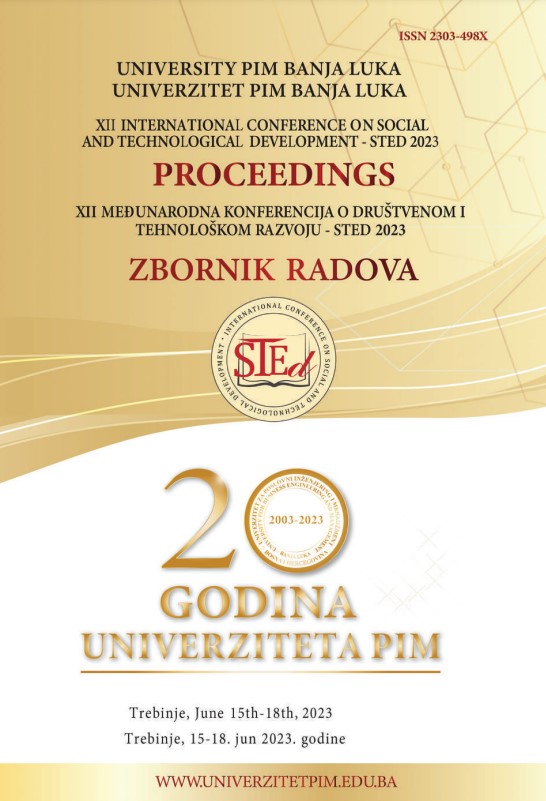PERCEPTION OF STRATEGIC CORPORATE GOALS AND EMPLOYEES' MOTIVATION
DOI:
https://doi.org/10.7251/PIMZ2301208TKeywords:
goals, human resources, motivationAbstract
The majority of authors in previous researches agree that strategic corporate goals should be clear, timely, transparent and accessible to all stakeholders. What is not yet completely clear and sufficiently researched is how much the perception of these goals by employees as stakeholders affects their motivation? The goal of this research is aimed at finding an answer to that question. The research was conducted on a representative quota sample of 120 respondents. In order to determine the perceptual processes of strategic goals and motivation of employees, a five-point Likert scale with 12 defined statements was constructed and used. The method of partial correlation was used. The determined coefficients point to three key conclusions. (1) The perception of goals by employees reflects positively on employee identification (r = 0.6611). (2) The perception of goals by employees is not significantly reflected in employee motivation (r =0.3171). (3) Identification of employees with a strategic organizational goal has a positive effect on employee motivation (r = 0.8358). This segment of human resource management is still insufficiently known and researched, and therefore represented in practice. This should be a clear guide for researchers, but also for entrepreneurs and managers to make a turnaround in the creation and realization of organizational goals. More effective creation of perceptual flows and identification processes should be given its respectable place in the motivation of employees.
